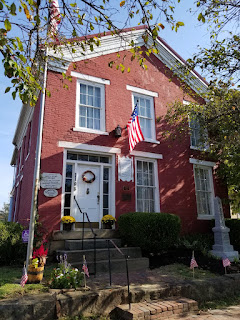In observance of Black History Month, West Virginia Senior Legal Aid remembers those brave people who decided to challenge the many inhumanities of slavery in America.
Virginia’s population before the Civil War included the largest number of enslaved people in the country at that time. Slavery was legal in 15 states before the Civil War.
The mountainous areas that would become West Virginia also included slave-owning people.
Abolitionists lived within Virginia’s borders as well. They and African Americans were committed to helping enslaved people on their torturous and dangerous journey to freedom.
The Underground Railroad had, by necessity, to be a very secret organization. Operating from the 1830s through the end of the Civil War around the country, no formal records were kept or photos taken of the people or process.
Those making this perilous journey to freedom were not given maps or provisions. If they were fortunate enough to find a road leading north, northeast or northwest and could appreciate that was the best direction to go, they stood a better chance.
Should they try to hitch a ride on a wagon? Even if it were driven by a black man, what if the driver turned them in? How would they know where they were safe from capture? How would they get enough food to keep on traveling? Nighttime was their friend for moving around, but their lack of familiarity with an area would be a great danger to them.
For those who escaped from whatever plantation or farm and were able to reach the small town of Ceredo along the Ohio River, there was aid.
Built by Zopher Ramsdell in 1858, his two-story brick house contained a place to hide before crossing into Ohio, a free state. A trap door in the floor of the home led to a crawlspace and cellar for shelter.
Oral histories have confirmed that the home was a last stop on the Underground Railroad before freedom.
Ramsdell and a number of others had moved from New England to Ceredo for the purpose of participating in the Underground Railroad. The anti-slavery group established the town in 1857.
A shoemaker by trade, he built a shoe and boot factory in the area.
Ramsdell House is now a museum open for free tours.
“Aunt Jenny” was a conductor on the Underground Railroad. Between Parkersburg and Belpre, Ohio during the 1840s, she aided runaway slaves fleeing through the area by notifying agents across the river of their presence and gathering information about slave catchers who would earn a bounty for each captured slave.
Historians believe that Aunt Jenny was a Black woman named Edna Sutton. Her brave efforts have been commemorated on a historic marker in Point Park in Parkersburg.
On WV Rt. 18 near New Milton in Doddridge County is the two-story brick home of Deborah and Jepthah Fitz Randolph. Members of the Seventh Day Baptist religious denomination, the Fitz Randolphs were abolitionists and were known for opening their home, built in the late 1840s, as a temporary stop for runaway slaves.
The home is in private hands today and still stands as a testament to the will of those who risked their own lives and freedom to help, at any time of the day or night, those who were desperate to live as free people.
All of those mentioned here lived to see the end of slavery and West Virginia becoming the nation’s 35th state, a free state, in 1863.
This article is contributed by Deb Miller

